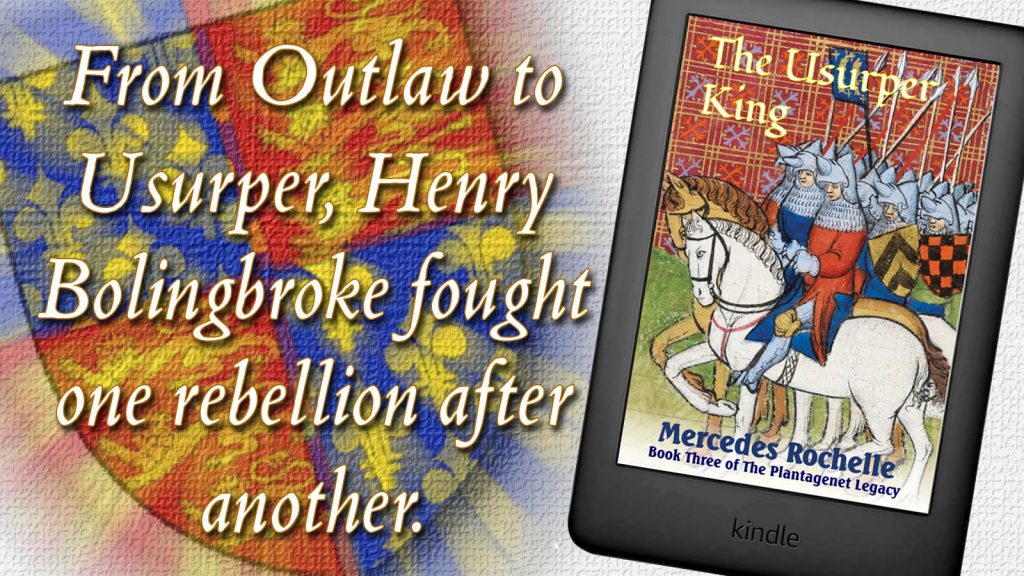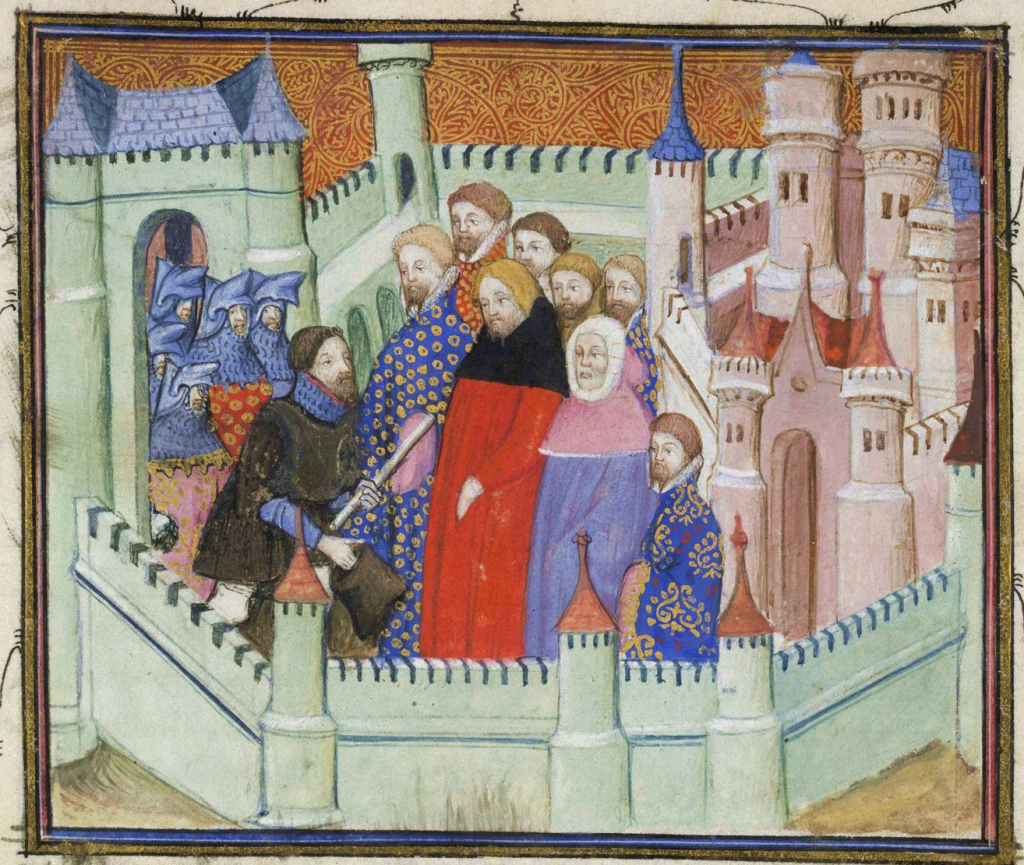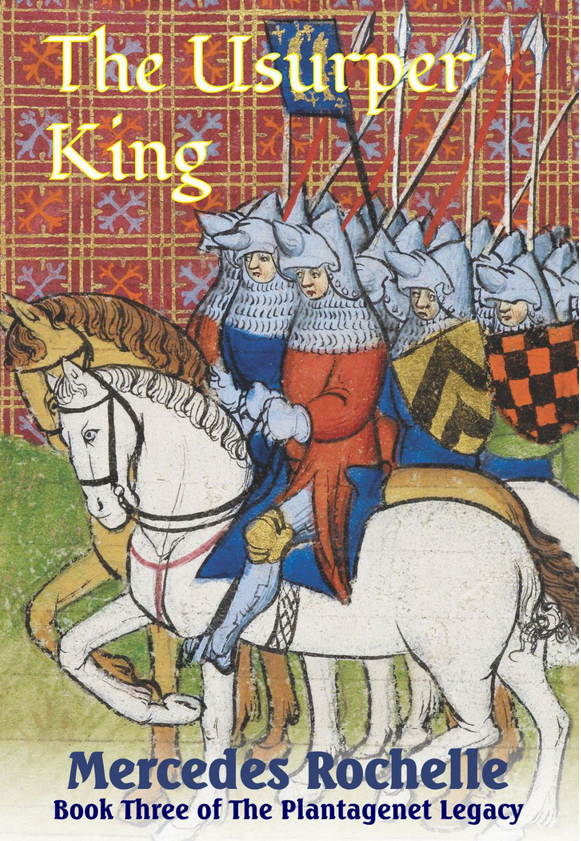It’s a great moment for a newbie author to have her first guest post and I’m delighted to welcome Mercedes Rochelle who has been kind enough to answer the three short questions I posed. Mercedes has recently published book three of her Plantagenet Series, Usurper King to add to what is a growing list of previously published books, both fiction and non fiction.

Mercedes was born in Missouri but now lives in New Jersey and I was curious as to what drew her to become a writer of medieval historical fiction.
Your novels are all set in England. What got you hooked about English History?
It seems like an accident, but I keep bumping into Shakespeare as inspiration for my novels. The first, HEIR TO A PROPHECY was actually inspired by “the Scottish play”, but most of the action is in England anyway. Could it be because most of us Americans have a soft spot for our ancestors? I feel that I can relate to the English, and the Plantagenets really call to me. My thirty years as a medieval reenactor probably has much to do with it, too.

The characters you write about were often blood-thirsty and cruel. How do you make them appealing to the reader (and to you as the writer)?
I would say that the middle ages were pretty blood-thirsty and cruel in general, though they probably didn’t see themselves that way. Regardless, I’m a firm believer that good fiction thrives on conflict. I also believe that nobody is 100% evil. After all, the villain is the hero of his own story!
So part of the conflict, as I see it, is the innate contradiction between a character’s good and bad side. Does the protagonist always have to be a hero? Trying to see past the actions to the man inside keeps me interested. King Richard II was a prime example. He did so many questionable things! Of course, that’s why he lost his crown.
At the same time, he was very kind to his wives and to children. He wasn’t a bad man—just traumatized by events in his minority. I don’t think he could help himself. I hope that the circumstances surrounding his fall made up for the fact that he wasn’t particularly sympathetic. I didn’t want to whitewash him, so explaining his actions rather than excusing them was my solution.

What’s the biggest challenge in writing about people and events from over 700 years ago, and what’s the most fun part?
In essence, I don’t think people were all that different than today. One of my challenges is the language. Idioms are anathema, and at the same time we often don’t even realize we are using them. I always have an etymological dictionary running in the background and look up words that sound modern to me. If the word was first used in the 17th century, for example, I’ll find something else. It limits my vocabulary!
The other thing I struggle with is travel time. Often and again I’ll read a history that claims so-and-so traveled in an impossibly short time (Harold Godwineson from London to Stamford Bridge in 1066, for example. I wrote a blog post about it.) Under the best of circumstances, a man probably wouldn’t travel more than 50 miles in a day; the average was more like thirty. How about the second day? Without a relay, the horse would give out. I really don’t think they had relay, or posting stations before the 18th century (except for the Romans). So I also have a map running in the background so I don’t screw up my distances.
My enjoyment comes from deciphering the events I’m reading about. We almost never learn exactly what, why, or how a person decides to do something. We just learn about the fact. When a character acts “out of character”, it’s quite a challenge trying to sort out a reasonable explanation. Why did Hotspur rebel against the king, when he had so much to lose? Why did his father, the formidable Henry Percy, fail to show up for the Battle of Shrewsbury? Why did King Richard go to Ireland immediately after he took away Henry Bolingbroke’s inheritance? To me, these are the things that make historical fiction rock!!

THE USURPER KING
First, he led his own uprising. Then he captured a forsaken king. Henry had no intention of taking the crown for himself; it was given to him by popular acclaim. Alas, it didn’t take long to realize that that having the kingship was much less rewarding than striving for it. Only three months after his coronation, Henry IV had to face a rebellion led by Richard’s disgruntled favorites.
Repressive measures led to more discontent. His own supporters turned against him, demanding more than he could give. The haughty Percies precipitated the Battle of Shrewsbury which nearly cost him the throne—and his life. To make matters worse, even after Richard II’s funeral, the deposed monarch was rumored to be in Scotland, planning his return. The king just wouldn’t stay down and malcontents wanted him back.
Where to buy, & more information
Blog
ps. Mercedes writes a very informative blog, fascinating to any history buff.
pps. Her books are available in Audible too.
